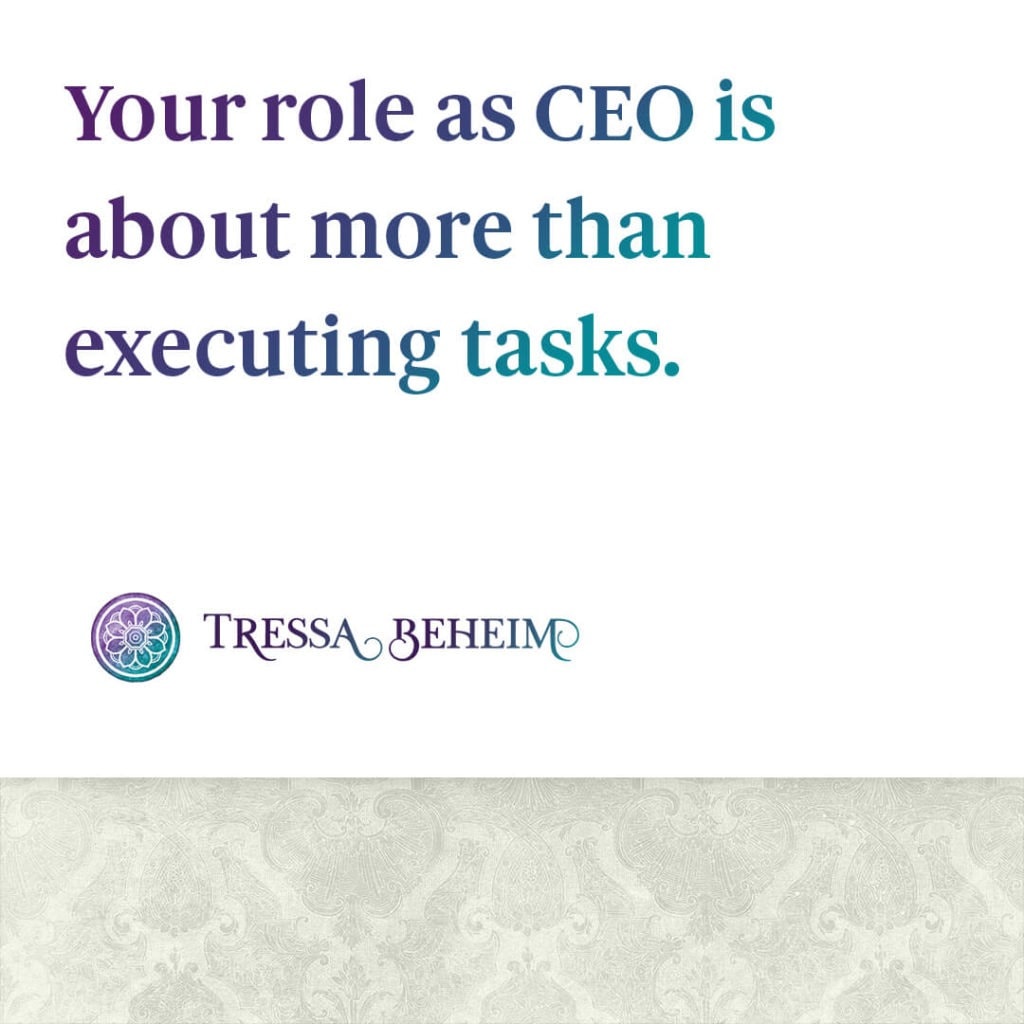Building a strong team takes dedication, time, and effort. All too often I hear business owners lamenting how difficult it is to work with their team members.
They complain that tasks don’t get done correctly or on time, and they feel like they’re constantly micromanaging things to get any results. But, when I dig deeper, I often see that a lot of it can be tied back to poor communication habits and unrealistic expectations on the part of the business owner.
When these things happen, you’re setting up yourself — and your team — to fail. Building a strong team is an ongoing process that you must intentionally foster in yourself and your team.
So, let’s talk about some of the most common pitfalls that can prevent you from building a strong team.
Communication
As soon as you add one person to your team, you’ll find that strong communication becomes a must-have. Without established protocols for how, when, and what you communicate, building a strong team is virtually impossible. These communication problems are ones that can be easily addressed with a bit of time and effort.
1. Jumbled Threads
This is one of the easiest ways for tasks to get lost: the never-ending email thread. Often, when someone complains about a missed task, we find it buried in an email thread 447 messages long about 12 other completely random things.
When you’re discussing a specific task, it can be so tempting to throw in just one more request; however, this makes it so easy to overlook and hard to find later.
When discussing something in an email or project thread, stay on task. Start a new discussion for new tasks or questions when they come up. It’ll save so much time and effort — not to mention frustration — all around.
2. Requesting things in the wrong place
Whether it’s Facebook Messenger, Skype, Slack, or email, requesting a task somewhere that you haven’t agreed upon can wreak havoc on a team’s effectiveness. While it’s nice to have so many methods of communicating with your team, that’s also a ton of places for them to monitor and manage.
When you are building a strong team, start by deciding on a central place to request and manage tasks; ideally, some sort of project management software, like Basecamp, Asana, Trello, or Teamwork. The options are endless, but you need to find one that works for you and your team — and stick with it.
I cannot underscore enough how getting out of the inbox for task management is an essential part of building a strong team. We primarily use Basecamp 2 with our clients, and the shift has done wonders to everyone’s productivity. While Slack, email, and even FB Messenger have their uses, they aren’t ideal for task management.
So, once you identify where you’re going to house tasks, stick to that one place for requests, and you’ll likely see the amount of missed tasks plummet.
3. Separating Discussions
Separating discussions across channels can cause issues. Once a task is started on one platform or channel, it’s best to keep it there. If you’re discussing something on multiple channels, it’s very likely pieces will go missing. If you have to separate the discussion for some reason, try to add the relevant details to the main location so they don’t get lost.
For example, Slack is a good place to ask quick questions or clarify instructions. But if any major decisions are made, make sure they end up in your task management platform. Otherwise, they are likely to get lost in quickly moving chat threads.
Building a strong team so often starts with effective communication. If you’re finding yourself frustrated by missed tasks, incomplete deliverables, or too many questions, be sure to assess your communication habits to see if they could be part of the problem.
Expectations
Setting realistic expectations for yourself and your team will go a long way towards making sure everyone works well together. Without the right expectations, you’ll find yourself stuck when it comes to building a strong team.
1. Expect what you pay for
This can be applied to so many things in business — whether it’s hiring a $4/hr VA from another country or a person to design your logo for $5 — you may not get what you need. There are, of course, exceptions, but generally speaking, you will need to pay appropriately for quality support when building a strong team.
This doesn’t mean you have to pay $100/hr for someone to type your blog post, but expect to pay the going rate — or even a bit more than average — to get reliable, skilled help. You also need to be sure you’re hiring the right skill level for what you need — even if it’s more expensive.
You have to expect what you pay for time-wise as well. If you’re paying for 10 hours a month of help, you can’t expect the same kind of support a full-time employee would provide. You also can’t expect to prep your whole launch, build a membership site, and service 100 customers in 10 hours a month.
Be realistic when determining the amount and type of support you need to reach your goals.
2. Set realistic deadlines
There’s nothing worse than waiting and waiting on a deliverable. This can sometimes lead to getting frustrated and expecting unrealistic turnarounds. Discuss deadlines with your team to ensure you know how long things will take and when you can expect them back.
Keep in mind that if you turn in your parts late, the deadline will likely be impacted. The team can’t start prepping the blog post, for instance, until they get the content from you. So, if you’re a day late, you have to accept that that may mean there will be a delay in publishing the post as well.
Building a strong team depends on everyone working well together and that often hinges upon everyone’s ability to honor deadlines.
3. Unclear expectations or feedback
This is a biggie when it comes to the smooth completion of tasks and projects. Without clear expectations of what you need, it is very difficult for your team to deliver. Once something is in progress, always do your best to provide clear, concise, and actionable feedback. This will help facilitate more effective and efficient edits.
This doesn’t mean you have to micromanage their expertise, but you do need to explain what you need from them. Don’t tell your designer, “I don’t like it,” and expect them to hit it out of the park on the next round. Instead, tell them specifically what’s bothering you and anything you’d like to see changed. This will give them far more to go off of, and you’ll likely get far better results in the next edits!
With clear, consistent, and appropriate expectations, you will find that everyone on the team functions far better. So, take the time to make sure your expectations match the reality you are creating, and you’ll certainly succeed far more when building a strong team.
Respect
Every member is important when it comes to building a strong team. From the CEO to the entry-level customer service rep, everyone deserves respect to help them perform their best. This may seem like an obvious statement, but it is important to ensure that there’s respect all around when it comes to your team.
Respect is a two-way street
While you are paying them for their work, your team will be far more effective if you also respect and honor them. Provide them with the respect you want to see from them, and you’ll work much more smoothly together.
Little things can go a long way here, so do your best to show up on time to calls or meetings.
For instance, honor the deadlines you set for completing your parts of projects. Show them that you respect their expertise and value their opinions. These are small things that are easy to forget when you’re busy, but they go a long way towards creating a strong relationship with your team.
When you’re struggling with your team, it’s very easy to point fingers and get frustrated by missed deadlines or tasks. While this can be a sign of a bad fit, sometimes, it’s more to do with how you’re leading your team than anything else.
So, be sure to consider how this could be impacting your team’s effectiveness the next time there’s an issue. You may be surprised by what you discover!



